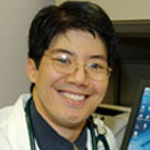Steven Cheng, MD, and Will Ross, MD, have received the 2012 Samuel R. Goldstein Leadership Awards in Medical Student Education.
The annual awards, which recognize outstanding teaching and commitment to medical education, are among the highest teaching honors the School of Medicine awards. They were established in 2000 in memory of Goldstein, a longtime friend of the medical school.
“We are delighted to recognize Steven Cheng and Will Ross for their exemplary efforts in providing our students with the best education,” says Larry J. Shapiro, MD, executive vice chancellor for medical affairs and dean of the School of Medicine. “We are so grateful to Samuel Goldstein for his gift that allows us to honor our faculty with these awards.”
A selection committee of faculty and students reviews all submitted nominations and selects two awardees based on incorporation of innovative approaches to teaching and curriculum development; commitment to enhance educational skills; and high scores on teaching evaluations. The committee sends its recommendations to Shapiro for final approval.
The awards will be given at a dinner in late spring.
Cheng, assistant professor of medicine, serves as the course master for the second-year renal pathophysiology course. He also is director of the Nephrology Fellowship Training Program.

He has received eight lecturer of the year awards and one distinguished service teaching award.
Students say that Cheng brings humor, enthusiasm, endless knowledge of the material and an uncanny knack for presenting the material in an approachable, understandable fashion. An example of Cheng’s innovative teaching efforts is incorporating icons from Star Wars and Mario Brothers into his explanations of electrolyte manipulation.
Ross, associate professor of medicine in the nephrology division and associate dean for diversity, teaches three first-year medical student selectives and a pre-orientation public health course. He also teaches students as an attending physician in internal medicine and on the nephrology consult service.
In 2011, Ross received the Award for Excellence in Teaching from the medical school’s nephrology fellows. He is recognized as a national leader in medical student education on social and cultural factors that influence health.
He has been able to weave complex topics on cultural competence, health disparities and community health into the medical school curriculum.
Colleagues say that Ross’ passion for teaching about public health reflects the interests and skills he developed as the former medical director of the region’s last public hospital and ambulatory clinics. Students say his casual teaching style emphasizes bedside manner, empathy and professionalism.